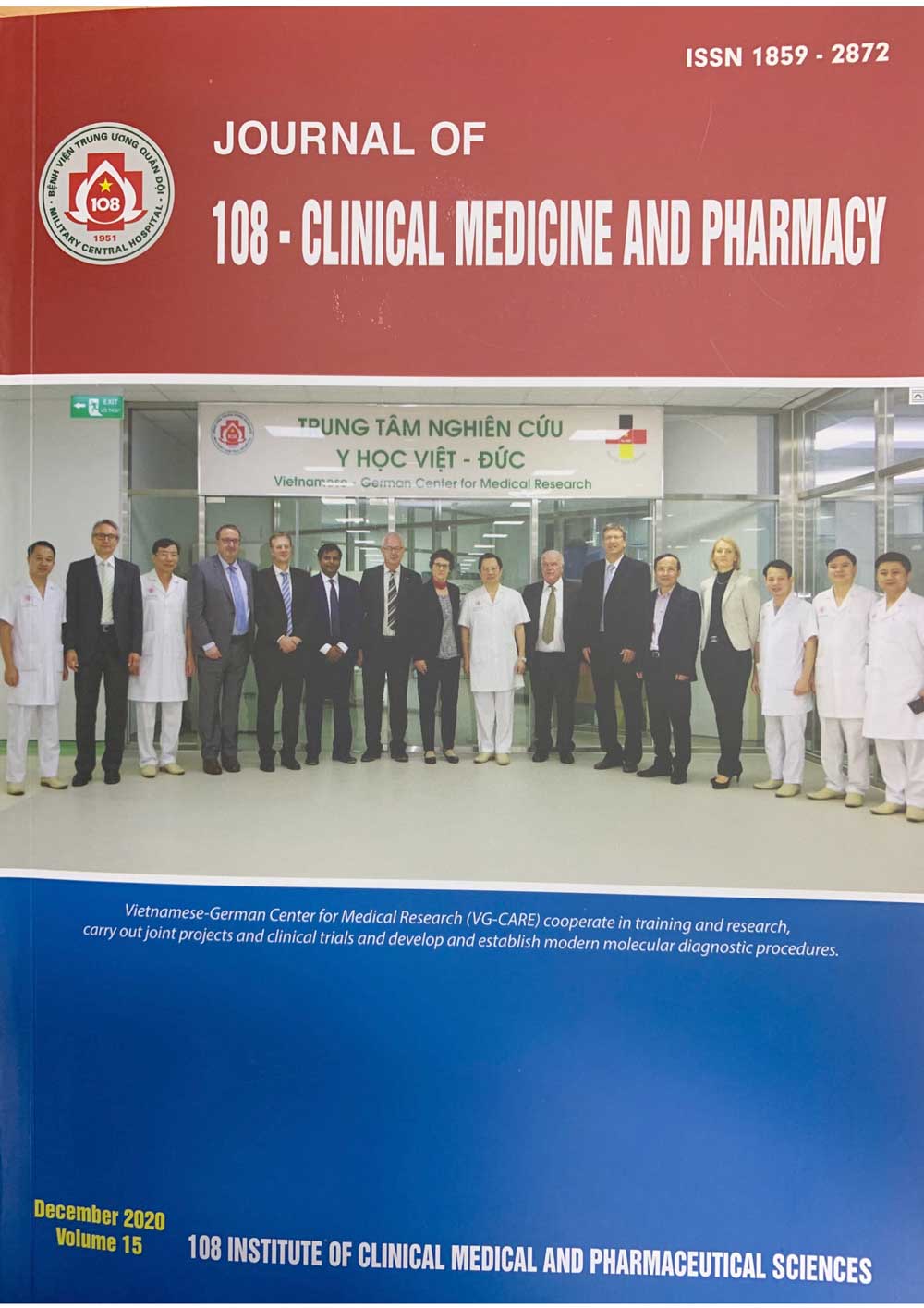Characteristics of cognitive impairment in elderly post-stroke patients at the National Geriatric Hospital
Main Article Content
Keywords
Abstract
Objective: To identify prevalence and characteristics of cognitive impairment in eldery post-stroke patients at the National Geriatrics Hospital. Subject and method: A cross-sectional descriptive study on 267 post-stroke patients aged ≥ 60 years old treated at the National Geriatrics Hospital. Patients were interviewed according to uniform questionnaire, cognitive function was assessed by using the Mini-Mental State Examination (MMSE): Total MMSE point < 24: Cognitive impairment. Result: The mean age of the patients was 70.5 ± 8.7 years, male patients accounted for 60.3%. The prevalence of cognitive impairment was 66.3%. The rate of severe, moderate and mild cognitive impairment were 32.2%; 18.4% and 15.7%, respectively. The registration, the language and the copying ability of hemorrhagic stroke patients were significantly lower than those in the group of ischemic stroke (p<0.05). Conclusion: This study confirms the high prevalence of cognitive impairment after stroke (66.3%) in which severe cognitive impairment (32.2%) was in majority. Cognitive impairment screening and early diagnosis will help to take remedial measures.
Article Details
References
2. Nguyễn Hoàng Ngọc (2012) Nghiên cứu tình trang suy giảm nhận thức ở bệnh nhân sau đột quỵ não cấp bằng thang điểm đánh giá tâm thần tối thiểu MMSE. Tạp chí Y Dược lâm sàng 108.
3. Johnson W et al (2016) Stroke: A global response is needed. Bulletin of the World Health Organization 94(9): 634.
4. Kumar S, Selim MH, and Caplan LR (2010) Medical complications after stroke. The Lancet Neurology 9(1): 105-118.
5. Nys GM et al (2005) Restrictions of the mini-mental state examination in acute stroke. Archives of Clinical Neuropsychology 20(5): 623-629.
6. Yew KS, Cheng EM (2015) Diagnosis of acute stroke. Am Fam Physician 91(8): 528-536.
7. Folstein MF, SE Folstein, and McHugh PR (1975) “Mini-mental state”: A practical method for grading the cognitive state of patients for the clinician. Journal of psychiatric research 12(3): 189-198.
8. Heruti RJ et al (2002) Rehabilitation outcome of elderly patients after a first stroke: Effect of cognitive status at admission on the functional outcome. Archives of physical medicine and rehabilitation 83(6): 742-749.
9. Renjen PN, Gauba C, and Chaudhari D (2015) Cognitive impairment after stroke. Cureus 7(9): 335.
10. Mukisa R et al (2011) Prevalence and types of cognitive impairment among patients with stroke attending a referral hospital in Uganda. African Journal of Neurological Sciences 30(2).
 ISSN: 1859 - 2872
ISSN: 1859 - 2872
